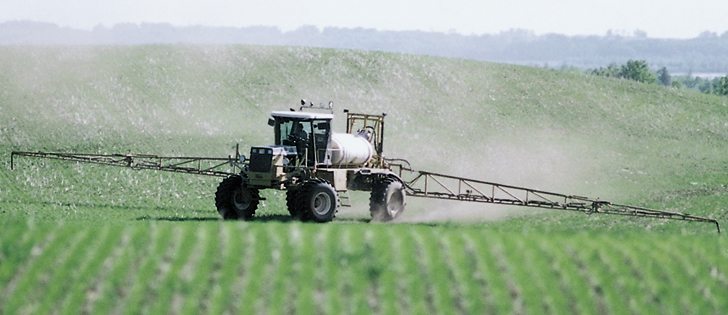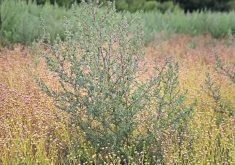Health Canada has concluded that 2,4-D does not cause cancer.
Late yesterday the Pest Management Regulatory Agency, a division within Health Canada, released the findings of its special review of 2,4-D, the world’s oldest herbicide.
The PMRA initiated the review in 2013, in part because Norway decided to prohibit all uses of 2,4-D.
Health Canada experts, after studying the published literature, decided the herbicide is not a carcinogen and that products containing 2,4-D are acceptable for continued registration.
“The PMRA review of the available toxicological database for 2,4-D determined that based on in vitro and in vivo studies, all forms of 2,4-D are not mutagenic or genotoxic,” the PMRA said in a report released Thursday. “The overall weight of evidence indicates that 2,4-D is not carcinogenic in rats, mice, and dogs.”
Read Also

Farming Smarter receives financial boost from Alberta government for potato research
Farming Smarter near Lethbridge got a boost to its research equipment, thanks to the Alberta government’s increase in funding for research associations.
The PMRA finding contradicts the International Agency for Research on Cancer (IARC), a division within the World Health Organization.
Last June an IARC panel classified 2,4-D as “possibly carcinogenic to humans.”
IARC decided 2,4-D was possibly carcinogenic, rather than probably, because the scientific evidence was relatively weak.
“Epidemiological studies did not find strong or consistent increases in risk of NHL (Non-Hodgkins Lymphoma) or other cancers in relation to 2,4-D exposure.”
The PRMA agreed with that assessment.
“It was concluded that the available epidemiological studies provide equivocal or no evidence for an association between exposure to 2,4-D and other human cancers, including prostate, breast, pancreatic, colorectal, and brain cancers.”
Health Canada, in its special review, also considered the herbicide’s potential impact on the environment. Using conservative methods, assuming high concentrations of 2,4-D, the PRMA determined the herbicide is not a threat.
“When the available surface water monitoring information was considered, the risk to aquatic plants was deemed to be unlikely.”
Canadians can comment on the PMRA special review of 2,4-D before the agency makes its final decision.
Contact robert.arnason@producer.com


















